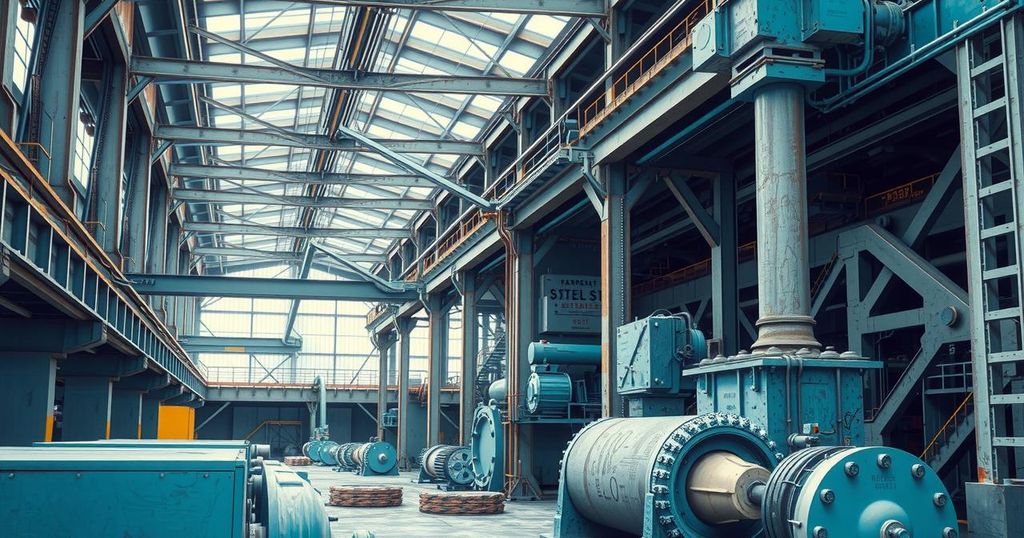Steel Development: A Foundation for Nigeria’s Economic Future
The Minister of Steel Development, Prince Shuaibu Abubakar Audu, highlighted the vital role of the National Steel Raw Materials Exploration Agency in realizing Nigeria’s goal of a $1 trillion economy by 2030. He discussed reducing steel imports, rehabilitating the Ajaokuta Steel Company, partnering with DICON for military hardware production, and attracting foreign investments to boost domestic steel production.
Prince Shuaibu Abubakar Audu, the Minister of Steel Development, has emphasized the critical role of the National Steel Raw Materials Exploration Agency (NSRMEA) in the Nigerian government’s plan to elevate the economy to $1 trillion by 2030. During his recent visit to the agency in Kaduna, Audu underscored President Bola Tinubu’s commitment to rehabilitating the Ajaokuta Steel Company, a crucial aspect of the nation’s steel production capabilities.
The Minister pointed out that Nigeria currently imports about $4 billion worth of steel annually, highlighting the urgent need for import substitution to alleviate foreign exchange pressures. He stated that achieving the desired steel production levels necessitates fully operational exploration within the industry. Audu commended NSRMEA for its performance and noted its ranking as one of the top agencies in his ministry based on previous assessments.
In addition to addressing import substitution, Audu revealed plans for collaboration with the Ministry of Defence and the Defence Industries Corporation of Nigeria (DICON) to produce military hardware. He reiterated that rehabilitating the Ajaokuta Steel Company is among President Tinubu’s primary goals, indicating plans to integrate the production of military hardware as part of a broader military-industrial complex initiative in Nigeria.
Regarding legislative measures, Audu mentioned an upcoming summit aimed at uniting stakeholders in the steel sector to devise a comprehensive growth strategy. He referred to the ongoing progress of the Metallurgical Industry Bill, currently at the second reading in the House of Representatives, which aims to create a regulatory framework for the steel industry.
Audu also noted the government’s efforts to attract foreign direct investments (FDIs) into the steel sector. He highlighted that during President Tinubu’s recent visit to New Delhi, a commitment was made to produce five million metric tonnes of steel in Nigeria, alongside a significant $300 million investment from a Chinese company in Ogun State, which will expand Nigeria’s steel production capacity. Audu expressed confidence that these reforms will rejuvenate the steel industry, setting a target to produce 10 million metric tonnes annually within the next five years, ultimately reducing the nation’s dependency on imported steel.
In conclusion, Minister Prince Shuaibu Abubakar Audu’s remarks reinforce the significance of steel development as a foundation for Nigeria’s economic aspirations. The government’s focus on domestic production, collaborations with defence entities, and legislative advancements illustrates a multifaceted approach to achieving self-sufficiency in steel manufacturing, reducing reliance on imports, and enhancing industrial growth for a projected economic milestone by 2030.
Original Source: www.thisdaylive.com




Post Comment